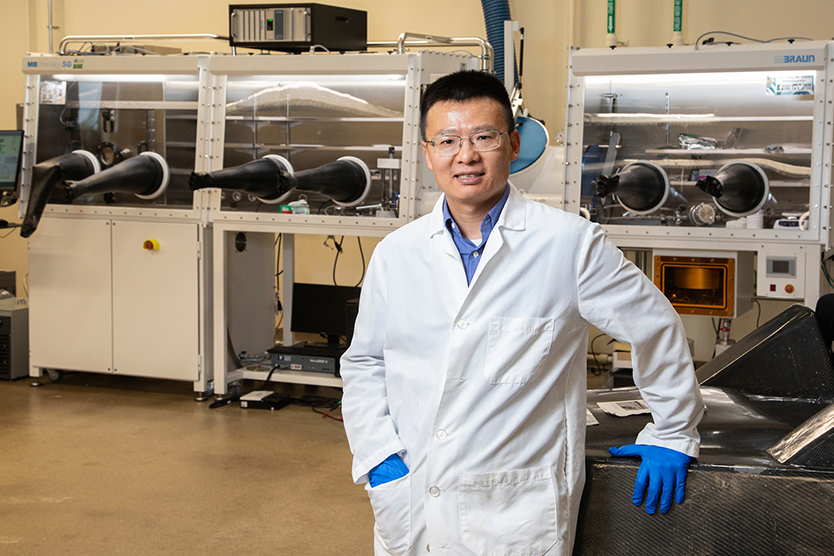
Fitness trackers, smartwatches and other wearable devices are popular ways to monitor and manage personal health. Researchers at the FAMU-FSU College of Engineering are helping advance that technology by developing soft and stretchable electronic components that improve measurement accuracy, hold a charge longer and offer more comfort for users.
Their research was published by the American Chemical Society’s journal Applied Materials and Interfaces.
“Most health monitoring devices are rigid, but human tissue is soft,” said study co-author Zhibin Yu, an associate professor at the FAMU-FSU College of Engineering. “Our health monitoring system can comfortably adhere to the human body and accurately monitor cardiovascular variables better than what is on the market today.”
HOW IT WORKS:
Wearable devices use light-emitting diodes (LEDs) to project light onto human tissues and a photodiode to detect the light. The intensities and waveforms of this interaction correlate to cardiovascular changes in the body. Many of these devices use rigid LEDs and photodiodes embedded in a stiff material like a watchband. The researchers have developed a soft, stretchable photodiode, embedded in an elastic polymer matrix, as an alternative.
“The new photodiode fits securely on the skin because it is soft and pliable like our bodies,” said Pengsu Mao, the study’s lead author. “It gives the user a more precise cardiovascular reading over time.”
WHY IT MATTERS:
Better health monitoring leads to better health outcomes. The device could improve diagnosis of cardiovascular diseases and make health care more accessible by providing accurate home testing. Health care systems worldwide are stressed, and precise testing will provide more resources to serve the aging population.
WHO’S INVOLVED:
Pengsu Mao, Haoran Li, Xin Shan, Melissa Davis and Zhibin Yu are researchers from the Department of Industrial and Manufacturing Engineering at the FAMU-FSU College of Engineering. The group works with Yan Xin, a researcher at the FSU-headquartered National High Magnetic Field Laboratory, and Te Tang, a researcher from the Department of Psychology and Program in Neuroscience at Florida State University.
Yugang Zhang and Xiao Tong from the Center for Functional Nanomaterials at Brookhaven National Laboratories and Jiang Cheng and Lu Li from the School of Materials Science and Engineering, Chongqing University of Arts and Sciences, China, are also working with the team.
WHERE IS FUNDING COMING FROM:
Grants from the National Institutes of Health, the National High Magnetic Field Laboratory, the National Science Foundation, the State of Florida, and the U.S. Department of Energy Office of Science Facilities at Brookhaven National Laboratory support this research.




